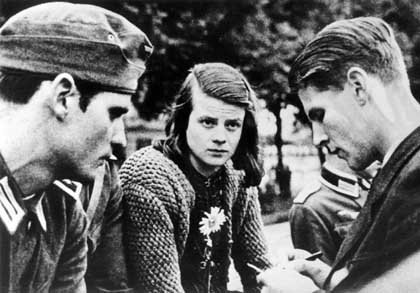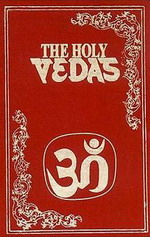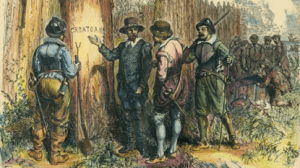Have you ever thought, why didn’t anyone try to stop Adolf Hitler? Were any Germans ever against him? Was the German community aware of the harm that Hitler was causing to innocent people? Indeed, there were. But who were the people behind these courageous acts? A group of college student attempted to stop Hitler and his heinous acts against Jews and his betrayal of the German people. In 1942, the group known as the White Rose arose in the streets of Munich, Germany. It was a student resistance movement that was created to expose Hitler to all of Germany. Their acts were believed to portray the true meaning of Christianity. The group made leaflets that contained information about the Nazis and their injustices. The letters were mailed to random addresses all over Germany. These students were willing to do whatever was needed in order to follow their moral duty and stop Hitler and his army.1
Sophie Scholl will always be remembered as one of the key individuals in the White Rose movement. She was born in Forchtenberg, Germany in 1921. She grew up in a religious and very political home. Her father was the mayor of the small town and her mother was a deaconess at their local church.2 Her parents raised her family to live an anti-Nazi life. Sophie was the second of three children. Both Hans and Sophie, like most other young Germans, were a part of the Hitler youth movement. There, individuals would be taught Nazi morals and train for battle. While in the program, Sophie and Hans were exposed to the injustices that were done by the Nazi government.3 Hans, her older brother, and his friends were responsible for starting the resistance movement. They named it after a white rose because it portrayed “purity and innocence.”4

Hans was attending the University of Munich when he started the movement. Along with friends that were also opposed to Hitler and the Nazi regime, they began writing leaflets that denounced the inhumanity of Hitler and his army. They described the Nazis as gangsters and violent criminals.5 After Sophie graduated High School, she followed her brother’s footsteps and attended the University of Munich, where she studied biology and philosophy.6
Sophie was an excellent writer, which played a crucial role in not only writing leaflets but distributing them as well. Not only did the group write leaflets, they spread their beliefs by spraying quotes on twenty-nine different public buildings. Some of the sayings were, “Down with Hitler” and the word “Freedom” on the sides of the entrance of the University of Munich.7 On one very significant leaflet, they exposed the horrendous acts, in which Hitler was responsible for the mass-murder of Jewish people. The group described this as, “the most terrible crime against human dignity, a crime not to be compared to any similar one in the history of mankind.” 8

One night, Sophie had a dream that she and her brother were arrested by the Gestapo. Little did she know that her dream would one day become a reality.
“Our people stand ready to rebel against the national socialist enslavement of Europe in a fervent breakthrough of freedom and honor.” This was the last line of the last leaflet that Hans and his sister would distribute on February 18, 1943.9 While everyone was in class, Hans and Sophie distributed the leaflets around the University. When they were done, Sophie went back and threw a stack of leaflets down a balcony. She was not able to flee the scene fast enough, as a Janitor saw her throw the leaflets down a balcony and went after her and the man beside her, Hans. The janitor stopped the individuals and reported the incident. Later, they were detained and taken to Gestapo Headquarters, where they were questioned. At the time, Hans still had a hand-written letter in his pocket, which incriminated his friend, Christoph Probst. The letter was potentially going to be the group’s next leaflet. Christoph was brought in for questioning. The individuals were detained for four days. They were questioned, and they in turn became victims of the brutality of the Nazi machine. While detained, the Gestapo broke one of Sophie’s legs. The three individuals were found guilty of “high treason,” and four days later were beheaded. The Gestapo did not stop, and they were on the lookout for other people who were involved in the group. It was not until five months after their execution when more members were detained and punished. One of the individuals was a Professor who had helped the group write some of the leaflets; he was later executed as well.10
The members of the White Rose stood up for their beliefs and condemned the horror of the Nazis, including Sophie, who was willing to do whatever was needed to inform others and stop Hitler from committing injustices, even if it meant losing her life in the process of it. They exposed the Nazis to all of Germany and fought to stop Hitler. Sophie Scholl along with her friends will go down in history for their braveness and courage to stop the Nazi regime.
- Annette Dumbach and Jud Newborn, Sophie Scholl and the White Rose (Oxford: Oneworld Publications), 5. ↵
- Women in World History: A Biographical Encyclopedia, 2002, s.v. “Sophie Scholl,” by Anne Commire. ↵
- John M. Lewis, “Germany and the White Rose,” New Hampshire Bar Journal 53, No. 2 (2012): 56-57. ↵
- Russel Freedman, We Will Not Be Silent: The White Rose Student Movement That Defied Adolf Hitler (New York: Clarion Books, 7 ↵
- John M. Lewis, “Germany and the White Rose,” New Hampshire Bar Journal 53, No. 2 (2012): 56-57. ↵
- Russel Freedman, We Will Not Be Silent: The White Rose Student Movement That Defied Adolf Hitler (New York: Clarion Books, 24. ↵
- Simon Henderson, “The White Rose and the definition of ‘resistance: Simon Henderson explains the significance of Hans and Sophie Scholl in the history of Nazi Germany,” History Review No. 53 (2005): 42. ↵
- Simon Henderson, “The White Rose and the definition of ‘resistance: Simon Henderson explains the significance of Hans and Sophie Scholl in the history of Nazi Germany,” History Review No. 53 (2005): 42. ↵
- Simon Henderson, “The White Rose and the definition of ‘resistance: Simon Henderson explains the significance of Hans and Sophie Scholl in the history of Nazi Germany,” History Review No. 53 (2005): 42. ↵
- Simon Henderson, “The White Rose and the definition of ‘resistance: Simon Henderson explains the significance of Hans and Sophie Scholl in the history of Nazi Germany,” History Review No. 53 (2005): 42. ↵



67 comments
Monserrat Garcia
This is such a great part of our history that I, unfortunately, had not known about it before reading this article. I find it inspiring how Sophie, her brother, and friends took matters into their own hands and fought for what they believed in even if that meant the consequences would be death. They were such inspirational figures that should be more widely talked about and covered and I thank you for writing this article and giving me this vital information.
Soleil Armijo
An extremely engaging article! I knew of the White Rose Movement but had no idea of the depth in which it goes. I admire Sophie and her brother’s bravery in going against the Nazi regime so openly. I can imagine it was a difficult task and a very dangerous one. I got goosebumps reading how her leg was broken during questioning and can’t imagine what other things they endure before their gruesome executions. Very sad!
Emilia Caballero Carmona
Hey Brianda, your article was so interesting to read. You provided a lot of detail and valuable information to understand the story of the White Rose group and how they made history. It was so sad to learn that Sophie and the other two individuals that were arrested with her were executed because they were “guilty for high treason” when in reality they were exposing the truth about Hitler and his army.
Amanda Gutierrez
Truly a wonderful article! The White Rose Society is sadly not discussed enough in history classes or mentioned enough in history books. Thank you for shining a light on a topic that is not addressed as much as it should be. The blind following of Hitler is often mentioned and very rarely are the accounts of resistance, thus making this an informative and refreshing article.
Sara Guerrero
It’s rare to learn about people who tried to stop Hitler and I really love this article because it was written in a short and sweet sense, and it does a great job summarizing the work of the White Rose Association. It was interesting how Sophie and her brothers were raised in an anti-nazi home and it really shows how dedicated they were in terms of religion. It was very brave of them to stand up and risk their lives to expose the wrong and try to bring the good. It’s upsetting that they didn’t have the power to win and they ended up executed, but their efforts will be remembered. Great article!
Hali Garcia
Great article!!! I have always wondered if there were any movements to stop Hitler and this article answered my question. Both Sophie and Hans were extremely courageous people. They wrote and distributed leaflets and created a student movement protesting and revealing the evil Hitler was doing. What struck me was how they were taught the Nazi morals and put it into their leaflets to expose what was happening. What shocked me the most had to have been their punishment. I did not know that beheading was still a punishment.
Samuel Vega
Courageous and inspirational are two words that come to mind when I read this article. Reading so many other articles on how people seemed to blindly follow Hitler, it is refreshing to read an article on a group that stood up the injustice that was happening in Germany. I hope the student movement encouraged others to take a stand. Perhaps they were not as visible as Sophie, her brother, and the other members of the resistance group; but hopefully they were called to action in some small way.
Patricia Arechiga
It is no surprise to me that the name of Sophie School is unfamiliar to me despite her impact during a historical time period. It is beyond remarkable that she placed herself in a position which held not only danger but required persistence. Not only was this a time period in which females held no political right/say, but a time period in which everyones fate was in the hands of Hitler. It is pretty incredible that she expressed her opinion both verbally and in writing. I wonder how many other Sophies there are that we do not know about.
Juan Arceo
This article helped inform me of the White Rose group and I honestly would have liked to have known about them earlier. It is inspirational to see that Sophie had such a commitment to bringing aware in stopping Hitler and the Nazis, that it unfortunately costed her life as well as many other members who were involved in this movement.
Engelbert Madrid
I am surprised that I’ve never heard of this group known as the White Rose that tried to stop the Nazi regime from doing more injustices over the Jewish community. Furthermore, I’m astonished that the White Rose movement was established by young German students from Munich, Germany, because it takes a lot of courage to confront a powerful dictator that has overall control over the German population.